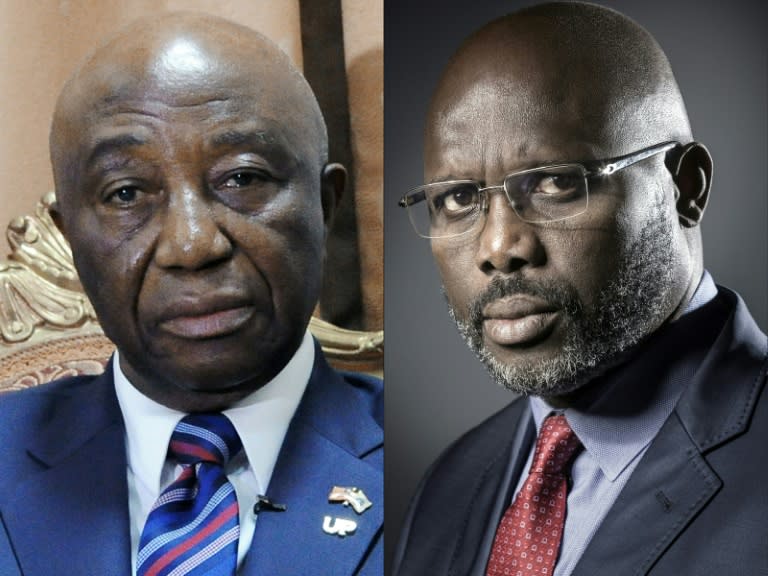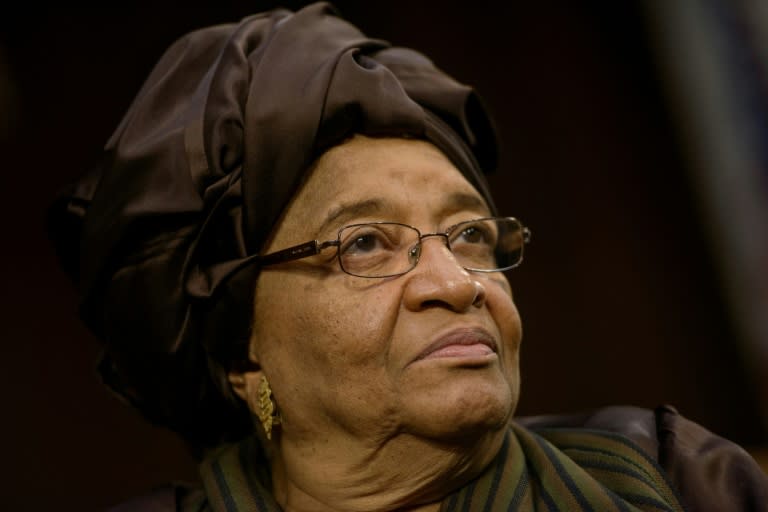Liberia ruling party backs challenge to election result
Liberia's ruling party on Sunday announced a formal complaint against the electoral commission over the outcome of the October 10 presidential poll, days before a runoff involving its candidate, Vice-President Joseph Boakai. The election was hailed as largely credible by domestic and international observers, despite recorded irregularities and long delays in voting. The ruling Unity Party said it would join two other parties in seeking "a logical legal conclusion as quickly as permissible under Liberian law," following the Liberty Party and All Liberian Party (ALP) in lodging complaints with the National Elections Commission (NEC). A statement released by the three parties said the election, which saw former international footballer George Weah take the most votes among 20 candidates, was "characterised by massive systematic irregularities and fraud". The statement also accused the outgoing President Ellen Johnson Sirleaf, also of the Unity Party, of "interfering" with the vote by meeting polling officials at her residence. That gathering, which took place before the October 10 election, "clearly amounted to interference with the electoral process and has no legal basis or justification whatsoever," the parties said, without specifying what they believed was discussed. The statement was timed for release with Sirleaf's birthday, as Africa's first elected female leader turned 79 on Sunday. - Echoes of 2011 - Vice-President Boakai has publicly questioned Sirleaf's commitment to his campaign and his supporters have claimed she backs Weah for president, despite the former AC Milan ace belonging to a different political party. Boakai and Weah are due to go head-to-head in the run-off presidential vote on November 7. The parties' statement detailed fraud allegations focused on voter registration cards printed without serial numbers to track them which were given out to ineligible voters, as well as accusations against Sirleaf's personal staff. Their announcement will come as a blow to the international community, which had urged all sides to ensure Liberia's first democratic transition in more than seven decades went smoothly and to accept the election's results. Nathaniel McGill, Chairman of Weah's Coalition for Democratic Change (CDC), pointed out that his party had boycotted the runoff of the last presidential election in 2011, when Sirleaf won by a landslide as a result. "If the Unity Party is afraid, they can go ahead and sit down. In 2011, we said we were not going to (participate in) elections and they had one-party elections here. The elections will go ahead. Those who have lost these elections, they should accept the results," McGill said. Sirleaf, Africa's first female elected head of state, is stepping down after a maximum two six-year terms in which she steered the country away from the trauma of civil war, but, say critics, failed to tackle its poverty. Liberia is one of the world's poorest nations, and suffered back-to-back civil wars between 1989 and 2003 before being hit by Ebola in 2014, another key challenge for the Sirleaf presidency.



